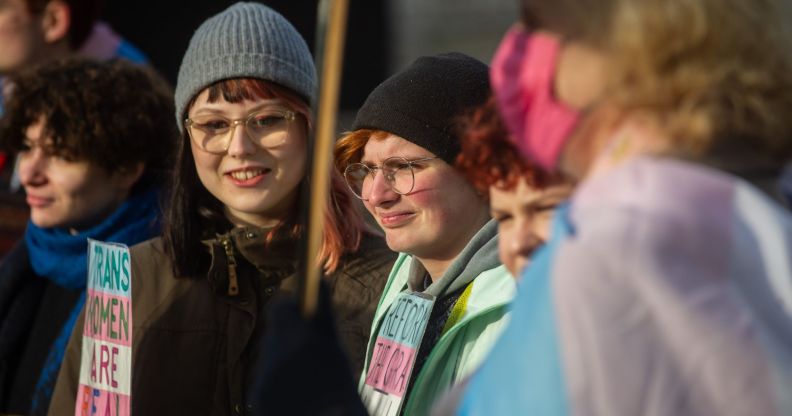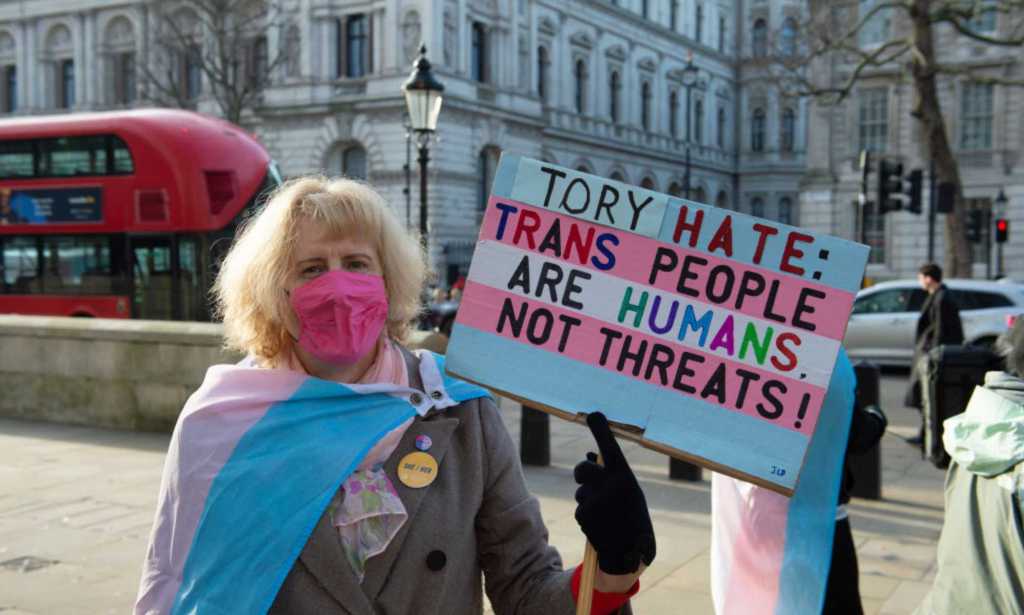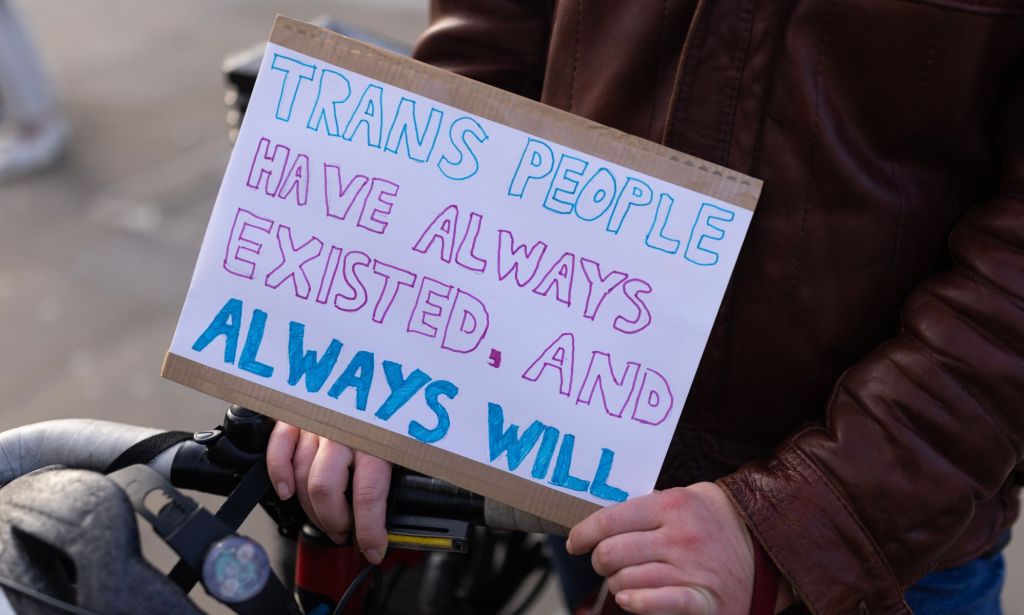Tories blasted for ‘performative cruelty’ over Scottish gender bill by concerned trans folk

The trans community in Scotland are worried what the government’s decision could mean for their rights. (Gettyy)
Following the UK government’s decision to block Scotland’s Gender Recognition Reform bill, trans activists have questioned what this means for their rights across the country.
Some have told PinkNews the block is “a political move”, an attempt to “stoke the fire of the culture war” and an act of “performative cruelty.”
The Conservative government announced on Monday (16 January) it would be blocking amendments made to the Gender Recognition Act (GRA) by Scotland following a December vote.
The modified GRA would have made it easier for trans people to obtain a Gender Recognition Certificate (GRC) – which legally recognises their gender identity – by removing medical requirements and lowering the age limit from 18 to 16.
The move to block the democratically passed legislation by invoking Section 35 of the Scotland Act was overwhelmingly condemned as an “attack on democracy” by activists and political figures.
But in the midst of the debate surrounding the rights of trans and non-binary people, members of the trans community have felt a resounding cynicism about the future of their rights.
A ‘deliberate misunderstanding of the law’
For Glasgow-based trans software developer Alice, the news has cemented an already bleak view of trans rights in Scotland.
Speaking to PinkNews, she says she believes the bill’s blockage was due to a “deliberate misunderstanding of the law” and says it’s a clear “political move by the Tories”.
“Surely everyone invested in this fight on either side knows that access to single-sex spaces for trans people is not governed by a GRC, but by the Equality Act’s characteristics of gender reassignment?”

Since the passing of the bill, various anti-trans pundits have made false assertions that Gender Recognition Certificates have more power than they actually do.
One of these is the false claim that having a GRC gives trans people legal permission to access a space dedicated to the gender they identify with, despite legal documents not actually being required to enter a public toilet.
“What facilities do they think we’ve been using for the years prior to being eligible for a GRC in the first place?” Alice adds.
“No, this blocking is a political move by the Tories.
“They are grasping any issue they can to stoke the fire of the culture war and try to rally their base. They’re willing to risk the integrity of the union just to spite trans people.”
‘They have burned their bridges with the LGBTQ+ community’
Scotland’s first minister, Nicola Sturgeon, has vocally blasted prime minister Rishi Sunak after the announcement, calling it a “full-frontal attack”.
Since then, she has confirmed that the Scottish government would challenge the UK government’s decision during an interview with the BBC.
The news came as a pleasant surprise for activist Katherine O’Donnell, who said she thinks that the legal challenge “will prevail”.
“This is performative cruelty designed to appeal to the bigotries of their base,” she tells PinkNews. “The old political consensus is dead and this foolish effort to thwart Scottish democracy is indisputable evidence of that.”
Not only has the Conservative party’s decision appalled activists, but Labour leader Keir Starmer’s comments prior to the announcements were described as “disappointing”.
The opposition leader said he approached trans issues on the basis of “biology” during an interview on LBC, while also refusing to condemn the Conservative’s rumoured plans, prior to the official announcement.
“Instead of standing up to unjust and divisive Tory culture war games, they are enabling them,” O’Donnell says.
“In doing so, I believe they have burned their bridges with the LGBTQ+ community.”

Even before the bill’s eventual passing, activists felt as though the steps towards its enactment were lethargic.
Activist Steph Paton says the passing of the reform bill wasn’t a particularly “joyous” moment for them.
“It came at the end of a bitter six-year journey wherein legislation was delayed, watered down, and used to justify a return of the same abhorrent rhetoric that was levied against the LGBTQ+ community in the 80s and 90s.
But the non-binary writer still saw the benefits of the bill, and as appalled when it was blocked by the UK government.
“While it didn’t go far enough in some respects, and legal recognition for non-binary people was removed, it did at least mean that many trans people would be able to update legal documents with a degree of dignity.
“The UK government’s justification for blocking the bill is as flimsy as it seems to be,” they add.
“The decision to intervene was driven more by the Conservative government’s right-wing culture war than genuinely held concerns.”
Paton says the decision would mean “more delays” in enacting a bill that is, “on the face of it, wholly unremarkable in what it does.”
‘We just want fair treatment’
Despite the complicated array of moving parts in the discussion, most trans activists have simply expressed their desire to be treated fairly and equitably.
Alice says, while the GRA reform was still important, the sheer volume of the pushback from such a “minor” reform is worrying.
“It’s a bit of paper to let us change some records,” she said. “If there’s one concise way for me to sum this up, it’s this: All we want is fair treatment.
“Our healthcare still takes years, employers still discriminate against us, and anti-trans sentiment is high,” Alice says.
“We thought that, finally, a minor reform might come through… But no. Thanks to Tory desperation and outright lies about GRCs, it looks like we might not even get that.”

